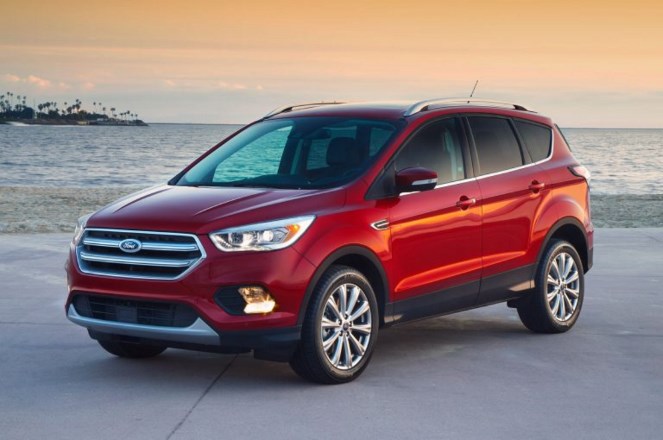The Ultimate Guide to Small Size SUVs: Compact and Efficient Choices
Small size SUVs, also known as compact SUVs, have taken the automotive world by storm in recent years. These versatile vehicles offer the perfect blend of practicality, fuel efficiency, and maneuverability, making them an ideal choice for urban dwellers and small families alike. As the demand for these vehicles continues to grow, manufacturers are introducing more models to cater to various preferences and needs. This comprehensive guide will explore the world of small size SUVs, their benefits, popular models, and what to consider when shopping for one.

What exactly is a small size SUV?
A small size SUV, often referred to as a compact SUV or crossover, is a vehicle that combines the features of a traditional SUV with the dimensions and efficiency of a smaller car. These vehicles typically offer higher ground clearance, a more spacious interior, and increased cargo capacity compared to sedans, while still maintaining better fuel economy and easier maneuverability than their larger SUV counterparts. Small size SUVs are designed to provide the versatility of an SUV in a more compact and city-friendly package.
What are the benefits of choosing a small size SUV?
Small size SUVs offer numerous advantages that make them appealing to a wide range of drivers. Firstly, they provide better fuel efficiency compared to larger SUVs, thanks to their smaller engines and lighter weight. This makes them more economical for daily commutes and long trips alike. Additionally, compact SUVs are easier to park and maneuver in tight urban spaces, making them ideal for city living. Despite their smaller size, these vehicles still offer ample interior space and cargo capacity, allowing for comfortable seating and storage flexibility.
Which are some popular small size SUV models?
The market for small size SUVs is highly competitive, with many manufacturers offering compelling options. Some popular models include the Honda CR-V, Toyota RAV4, Mazda CX-5, and Subaru Forester. These vehicles have gained a reputation for reliability, fuel efficiency, and versatility. Other notable options include the Nissan Rogue, Hyundai Tucson, and Kia Sportage, which offer a mix of style, technology, and value. European brands like BMW and Audi also compete in this segment with models such as the X1 and Q3, respectively, catering to those seeking a more luxurious compact SUV experience.
How do small size SUVs compare to traditional sedans?
When comparing small size SUVs to traditional sedans, several key differences emerge. Compact SUVs generally offer more interior space and cargo capacity, making them more practical for families or those who frequently transport larger items. They also provide a higher seating position, which many drivers prefer for improved visibility and a sense of security on the road. While sedans typically have better handling and fuel efficiency due to their lower profile, the gap has narrowed significantly with modern small SUVs. Many compact SUVs now offer comparable fuel economy to sedans, especially in their hybrid variants.
What should you consider when shopping for a used small SUV?
When looking for a used small SUV, there are several factors to keep in mind. First, check the vehicle’s maintenance history and mileage to ensure it has been well-cared for. Look for models with a reputation for reliability and longevity, as this can save you money on repairs in the long run. Consider the vehicle’s age and how it might affect features like infotainment systems and safety technology. It’s also wise to research common issues for specific models you’re interested in and have a trusted mechanic perform a pre-purchase inspection. Finally, compare prices across different sources to ensure you’re getting a fair deal on your used small SUV.
How do small size SUVs perform in terms of safety and technology?
Small size SUVs have made significant strides in safety and technology features in recent years. Many models now come equipped with advanced driver assistance systems (ADAS) such as adaptive cruise control, lane departure warnings, and automatic emergency braking. These features contribute to improved safety on the road. In terms of technology, modern compact SUVs often offer touchscreen infotainment systems, smartphone integration, and even Wi-Fi hotspots. When comparing different models, it’s essential to consider the available safety features and tech options to find the best fit for your needs and preferences.
| Model | Key Safety Features | Notable Tech Features | Starting Price (New) |
|---|---|---|---|
| Honda CR-V | Honda Sensing Suite | 7-inch Touchscreen, Apple CarPlay/Android Auto | $26,400 |
| Toyota RAV4 | Toyota Safety Sense 2.0 | 8-inch Touchscreen, Amazon Alexa Integration | $26,975 |
| Mazda CX-5 | i-Activsense Safety Features | 10.25-inch Display, Mazda Connect Infotainment | $26,250 |
| Subaru Forester | EyeSight Driver Assist Technology | Starlink Multimedia System, DriverFocus | $25,895 |
Prices, rates, or cost estimates mentioned in this article are based on the latest available information but may change over time. Independent research is advised before making financial decisions.
In conclusion, small size SUVs offer a compelling package for those seeking a versatile, efficient, and feature-rich vehicle. With a wide range of models available, from budget-friendly options to luxury compact SUVs, there’s likely a small size SUV to suit every preference and need. As technology continues to advance, we can expect these vehicles to become even more efficient, safe, and connected in the years to come.
The shared information of this article is up-to-date as of the publishing date. For more up-to-date information, please conduct your own research.




